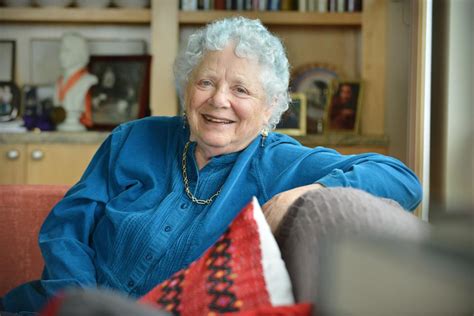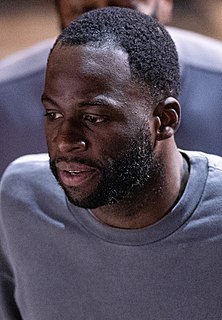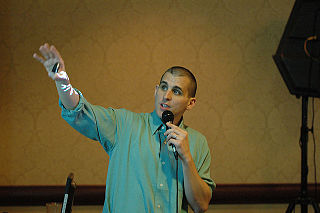A Quote by Anne Bernays
You can teach almost anyone determined to learn them the basics required to write sentences and paragraphs that say what you want them to say clearly and concisely. It's far more difficult to get people to think like a writer, to give up conventional habits of mind and emotion. You must be able to step inside your character's skin, and at the same time to remain outside the dicey circumstances you have maneuvered her into.
Quote Topics
Able
Almost
Anyone
Basics
Character
Circumstances
Clearly
Conventional
Determined
Difficult
Emotion
Far
Get
Give
Habits
Habits Of Mind
Her
Inside
Learn
Like
Mind
More
Must
Outside
Paragraphs
People
Remain
Required
Same
Same Time
Say
Sentences
Skin
Step
Teach
Them
Think
Time
Up
Want
What You Want
Write
Writer
Your
Related Quotes
You cannot teach somebody to write a masterpiece, but you can certainly teach them how to improve their writing skills. And you can teach them that they can make their own voices more effective by being able to communicate more clearly and forcefully. It makes people feel more capable when they can write - for instance to make a request - of a politician - and when they are able to receive a reply.
My biggest bits of advice are, write as much as you can, finish what you start, get a thick skin, don't take crap from anyone, but also live your life and have fun. The stereotype of a writer holed up alone all day is really unhelpful. You can't write real people and real emotion if you don't let yourself experience them.
I don't think anybody can teach anybody anything. I think that you learn it, but the young writer that is as I say demon-driven and wants to learn and has got to write, he don't know why, he will learn from almost any source that he finds. He will learn from older people who are not writers, he will learn from writers, but he learns it -- you can't teach it.
That famous writer’s block is a myth as far as I’m concerned. I think bad writers must have a great difficulty writing. They don’t want to do it. They have become writers out of reasons of ambition. It must be a great strain to them to make marks on a page when they really have nothing much to say, and don’t enjoy doing it. I’m not so sure what I have to say but I certainly enjoy making sentences.
I think I'm drawn to more villain-type characters, because it's so cool to get to say all the things you want to say. In Hollywood, you get to this position where you have to bite your tongue so much. You take all your experiences of not being able to say what you really want to say, and channel that through your character.
Snowden is almost preternaturally prepossessing and self-possessed. I think of a novelist whose dream character just walks into his or her head. It must have been like that with you and Snowden. But what if he'd been a graying guy with the same documents and far less intelligent things to say about them? In other words, how exactly did who he was make your movie and remake our world?
That's always been my main anxiety - the people in the room. That's my massive stress - thinking that these people in the room are judging me. And, this time around, I've been able to think a little bit more clearly about that. I've been able to think "Well, no. They're here to enjoy a show," and I want to give them that. I want to give them their money's worth – for starters.
There's this message to comedians in particular, that you shouldn't write it, and a television writer should write it. And that's a prevailing conventional wisdom that I think is really wrong. That's not to say that television writers aren't great, but I think that the belief that some comedy writer's going to be able to capture your voice is naive.
I'm a full-time believer in writing habits...You may be able to do without them if you have genius but most of us only have talent and this is simply something that has to be assisted all the time by physical and mental habits or it dries up and blows awayOf course you have to make your habits in this conform to what you can do. I write only about two hours every day because that's all the energy I have, but I don't let anything interfere with those two hours, at the same time and the same place.
You should look ahead now and decide what you want to do with your lives. Fix clearly in your mind what you want to be one year from now, five years, ten years, and beyond. Write your goals and review them regularly. Keep them before you constantly, record your progress, and revise them as circumstances dictate.






































